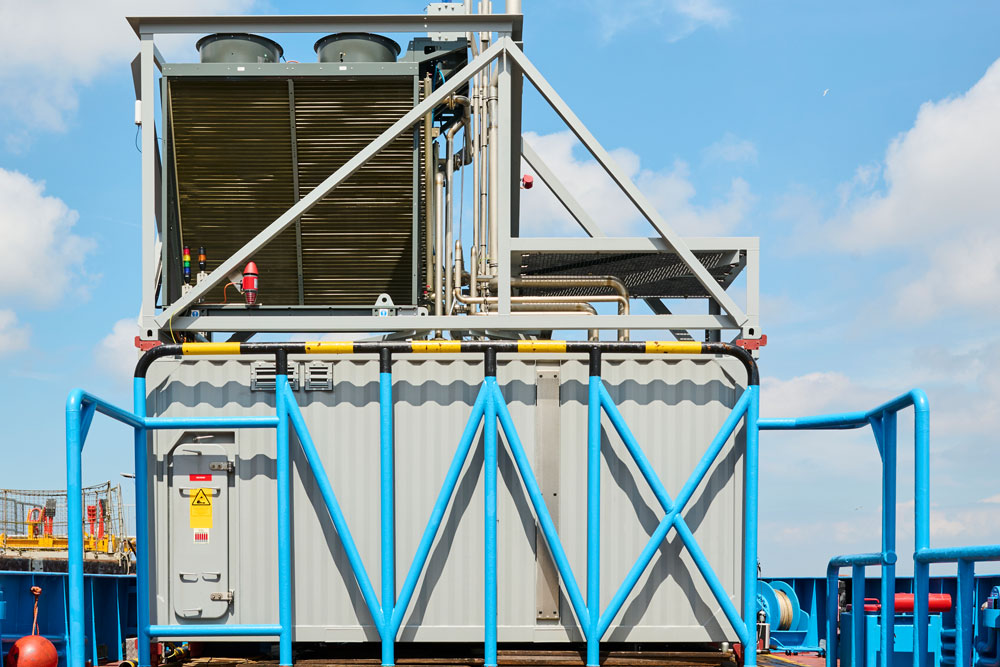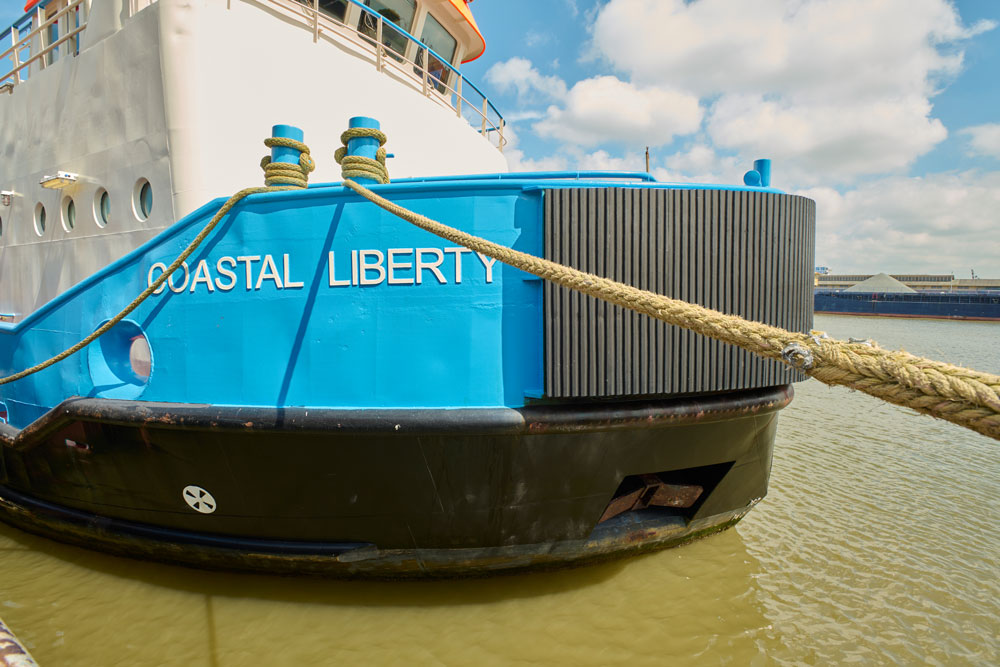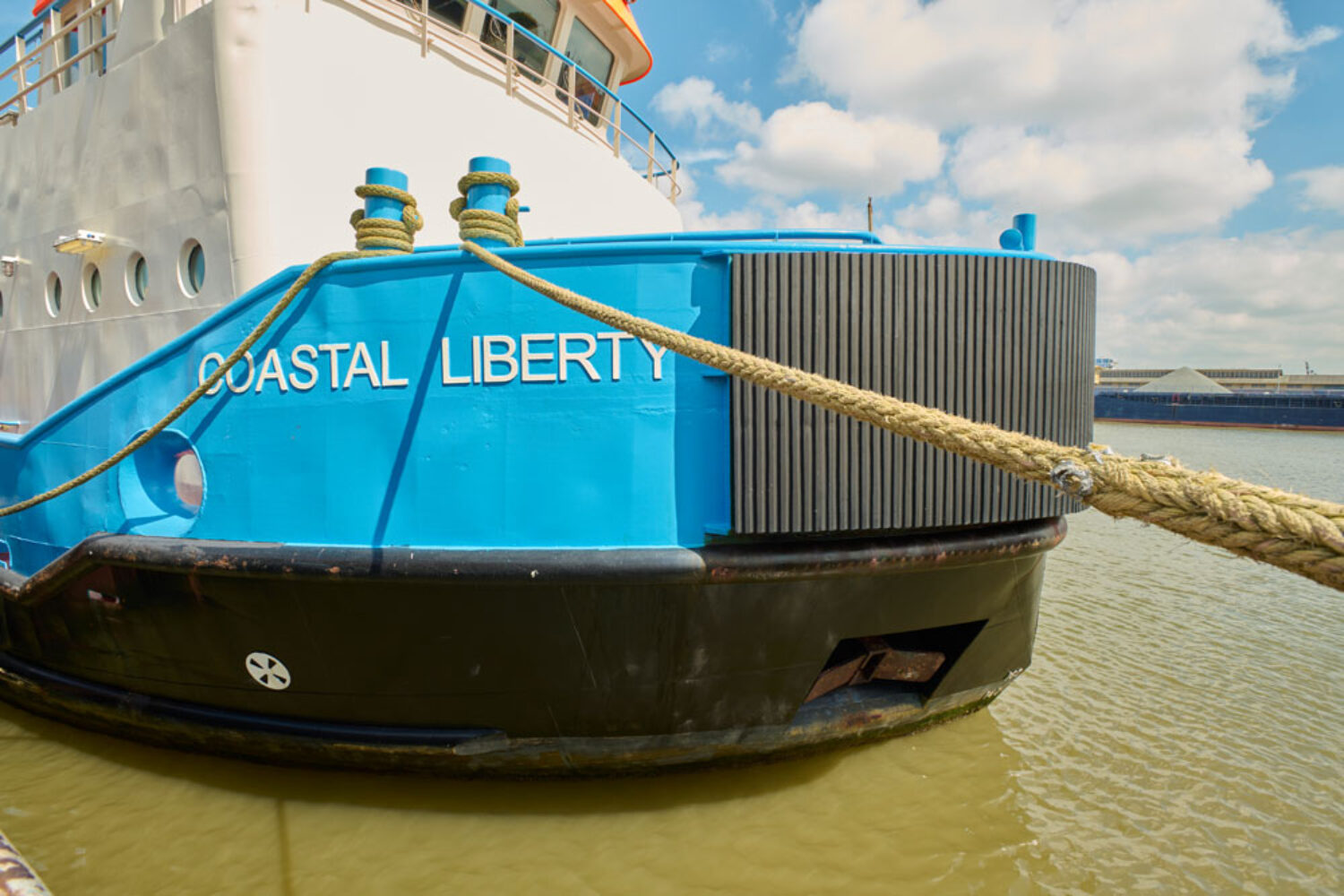The first months of running eCap Marine’s containerized hydrogen-electric energy system on board the Offshore Supply Vessel “Coastal Liberty” have been successful. The ship is operating in the German Wadden Sea.
The Dutch owner of the vessel, Acta Marine, has decided to switch to green hydrogen as its main source of energy. At the end of February 2024, the refitted OSV “Coastal Liberty” received class certification from DNV for its newly installed hydrogen system on board. eCap Marine, contracted by Offshore Service Gesellschaft mbH, engineered the system, enabling the vessel to operate emission-free using hydrogen and batteries.
A safe hydrogen-electric power system
Over the course of two years, eCap Marine developed a containerized system featuring two Ballard FCwave fuel cells (2x200kW), a maritime battery system from Lehmann Marine, a fire extinguishing system, tank units, a custom power management system, and all necessary cooling and safety equipment.
Lars Ravens, Managing Director of eCap Marine, states that this system is a unique installation on board a seagoing vessel and can be scaled up to megawatt-sized designs for larger commercial ships and longer voyages, as well as for smaller inland vessels.

“Coastal Liberty” runs on local hydrogen
The green hydrogen for the installed fuel cells will be produced locally and sustainably, using offshore wind power from a hydrogen electrolyzer plant located a few kilometers from the vessel’s berth. This plant was installed simultaneously with the fuel cell project.
The electrolyzer is designed to expand in case of higher demand. eCap Marine designed the three swappable high-pressure tank systems with a focus on safety, and in alignment with rules and regulations for transporting the units between the vessel and the electrolyzer by truck. eCap’s Head of Projects, Frederike Engels, confirms that switching, disconnecting, and reconnecting the hydrogen tanks is very easy and safe, taking just a few minutes due to the toolless design and standardized connections for crane and truck.
For the vessel’s crew, the new system means reduced vibrations on board and a more direct propulsion, allowing immediate response to the propeller shafts. Jochen Kaufholt, CEO of Offshore Service Gesellschaft, describes the “Coastal Liberty” as a first of its kind and a flagship for the maritime energy transition in Europe.














